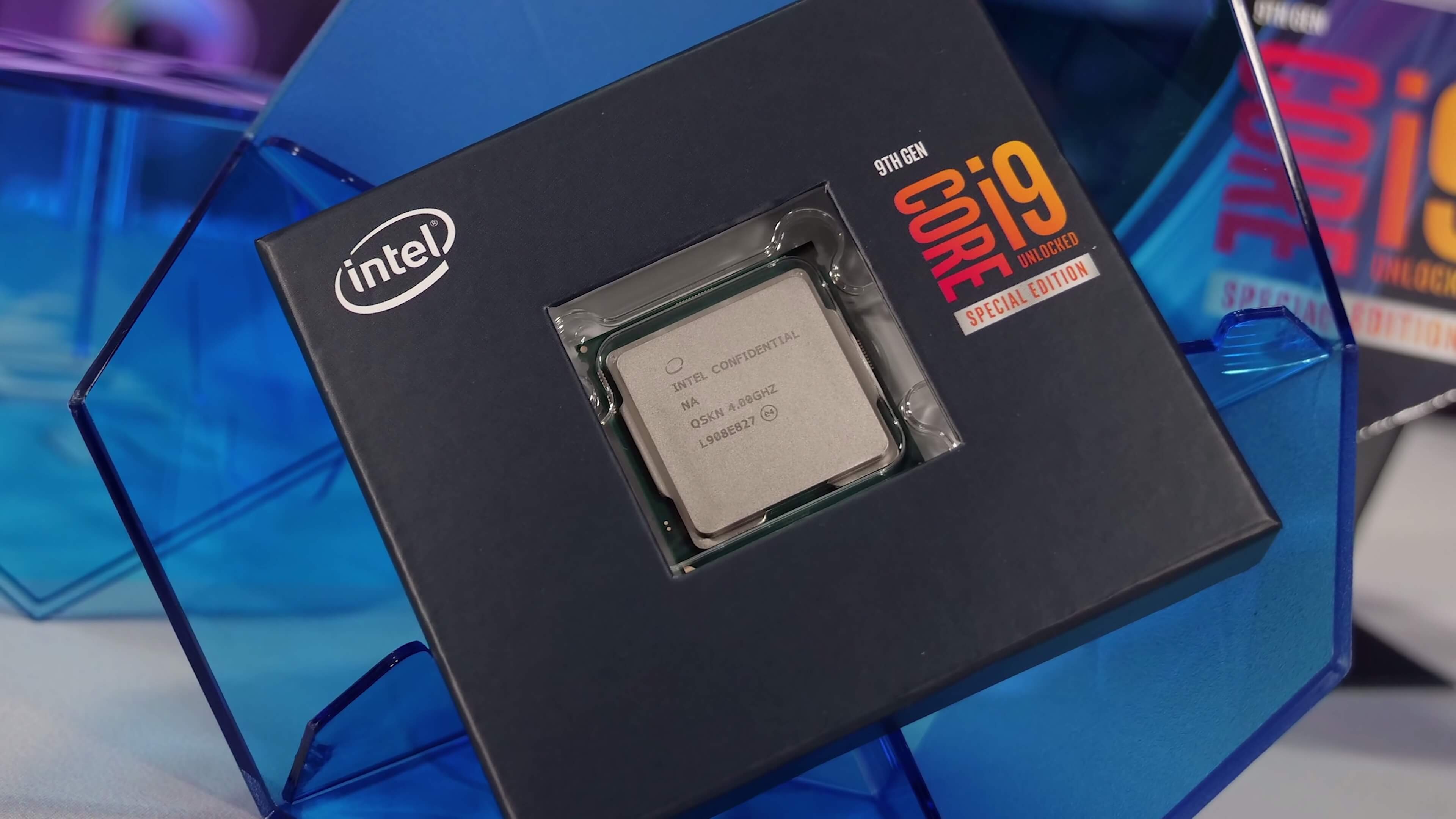Something to look forward to: Intel is offering an appealing upgrade with their tenth generation of mainstream processors. Every CPU now has hyperthreading, and every CPU is getting a 100-200 MHz speed bump over its predecessor. The flagship i9-10900K is also getting two extra cores and a new boost mode that can push speeds up to 5.3 GHz.

Two Intel presentation slides detailing all their major processors have been leaked and published by Informatica Cero and confirmed by VideoCardz, who also helped to fill in some of the blanks. While the specs are in no way guaranteed, at this point, they seem quite likely to be accurate.
Core i9 & Core i7
The i9-10900K has two extra cores and its base, single-core boost, and all-core boost frequencies are 100 MHz faster than this year’s i9-9900K. It also introduces new Velocity clocks, which replace the boost frequencies below a certain, yet-unknown temperature threshold. Kept sufficiently cool, a 10900K might be a serious upgrade over the 9900K.
| Model | Cores/ Threads |
Base (GHz) | All/Single Core Boost (GHz) | Single Core Turbo 3.0 (GHz) | All/Single Core Velocity (GHz) | TDP (Watts) |
| i9-10900K | 10/20 | 3.7 | 4.8/5.1 | 5.2 | 4.9/5.3 | 125W |
| i9-10900 | 10/20 | 2.8 | 4.5/5.0 | 5.1 | 4.6/5.1 | 65W |
| i7-10700K | 8/16 | 3.8 | 4.7/5.0 | 5.1 | - | 125W |
| i7-10700 | 8/16 | 2.9 | 4.6/4.7 | 4.8 | - | 65W |
The i7-10700K, on the other hand, is literally a 9900K: it has the same 8/16 core/thread configuration and the same boost clock speeds, which would put it a few percents faster than the 9700K.
Core i5
| Model | Cores/ Threads |
Base (GHz) | All/Single Core Boost (GHz) | TDP (Watts) |
| i5-10600K | 6/12 | 4.1 | 4.5/4.8 | 125W |
| i5-10600 | 6/12 | 3.3 | 4.4/4.8 | 65W |
| i5-10500 | 6/12 | 3.1 | 4.2/4.5 | 65W |
| i5-10400 | 6/12 | 2.9 | 4.0/4.3 | 65W |
Intel has finally relented and is giving their mid-tier i5 parts hyperthreading. They’re all getting a 200 MHz increase to their boost clocks as well, and the combination amounts to a decent upgrade.
Core i3
The budget i3 range is also getting the hyperthreading upgrade. The i3-10320 is getting a 200 MHz boost, and the other two models are getting a 100 MHz increase. We can conclusively say that the 10th gen i3 series is better than the 7th-gen flagship i7-7700K, which is absolutely awesome.
| Model | Cores/ Threads |
Base (GHz) | All/Single Core Boost (GHz) | TDP (Watts) |
| i3-10320 | 4/8 | 3.8 | 4.4/4.6 | 65W |
| i3-10300 | 4/8 | 3.7 | 4.2/4.4 | 65W |
| i3-10100 | 4/8 | 3.6 | 4.1/4.3 | 65W |
Platform upgrades with tenth-gen are pretty minor, there’s no PCIe 4.0 to be seen here. However, Intel now officially supports DDR4-2933, Wi-Fi 6 and 2.5G ethernet which is solid. They’ve also abandoned their ridiculous 95W TDP claim and replaced it with a more realistic 125W TDP on the overclockable models.
As a whole the tenth generation isn’t revolutionary, and for all but the most dedicated enthusiasts, the upgrade from ninth gen isn’t worth it. But it’s one of the bigger updates that’s happened in the last three to four years on Intel’s side, so it’ll be nicely competitive if pricing is in order.
Release dates are still a mystery, but given the proximity of this leak to CES 2020 (starting on Jan 7), you can almost bet you’ll see these specs on the big screen when Intel takes the stage.
https://www.techspot.com/news/83349-slides-reveal-intel-entire-10th-gen-series-up.html